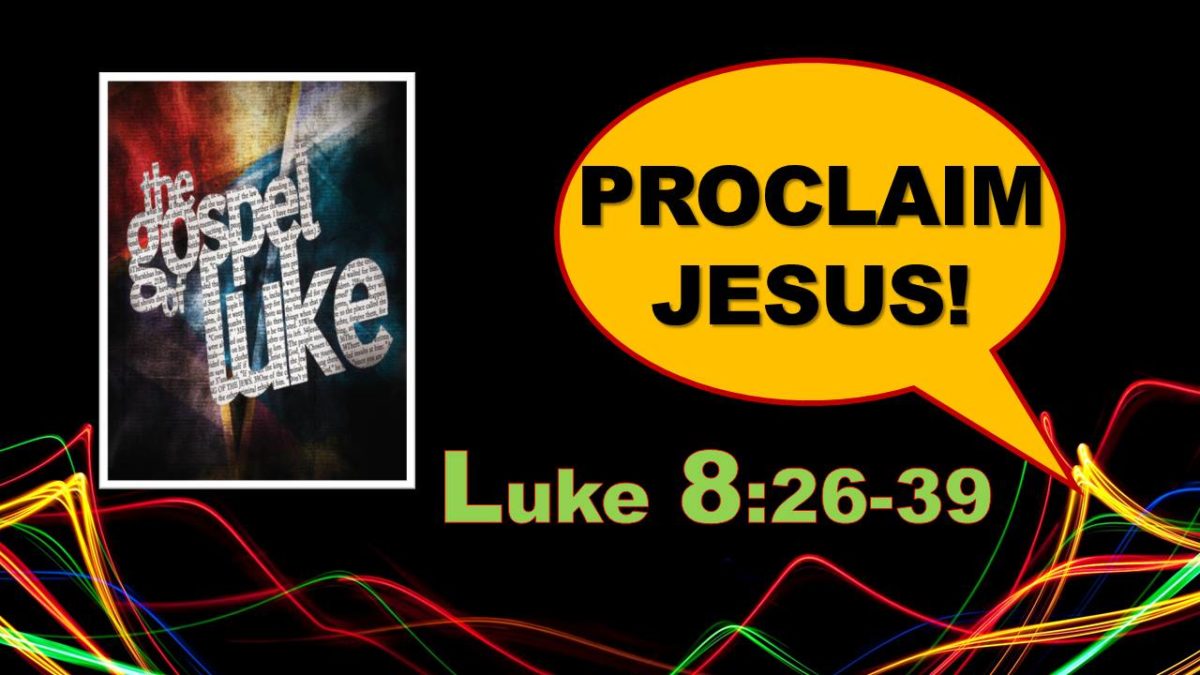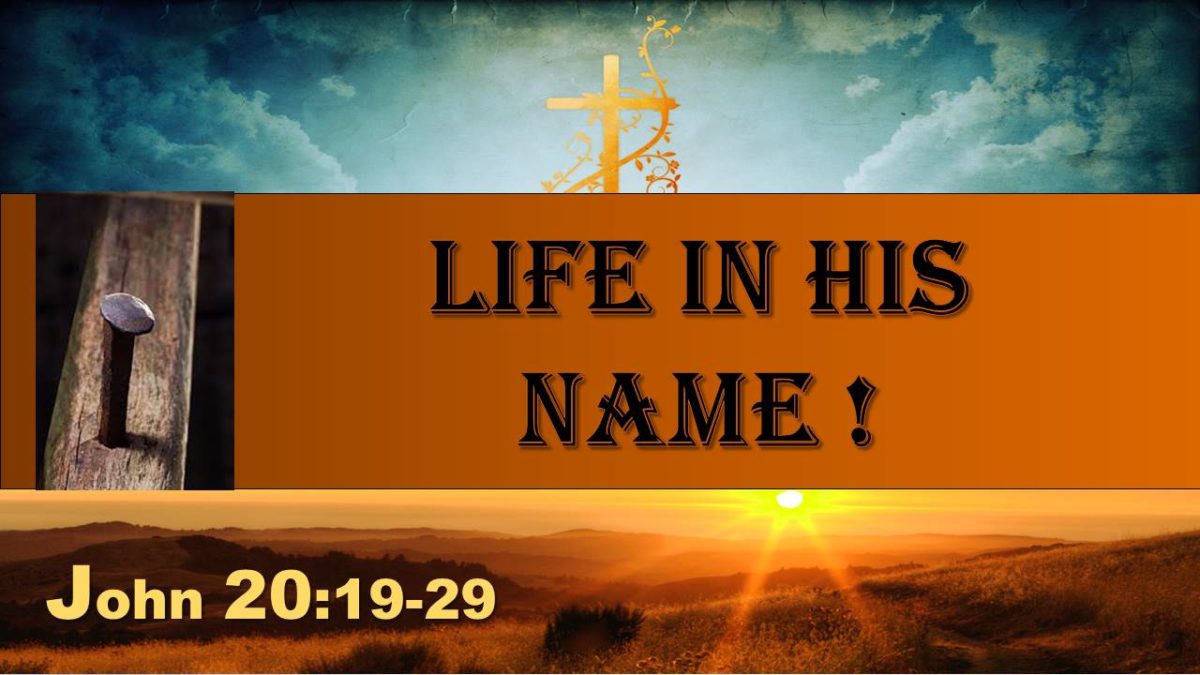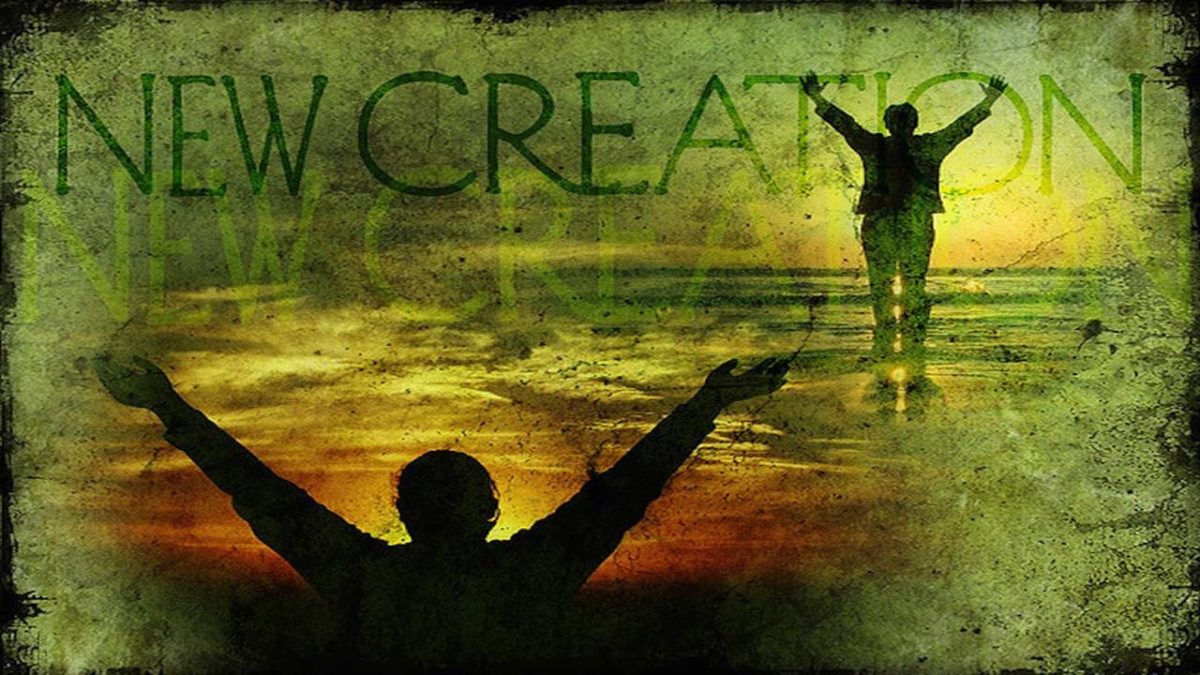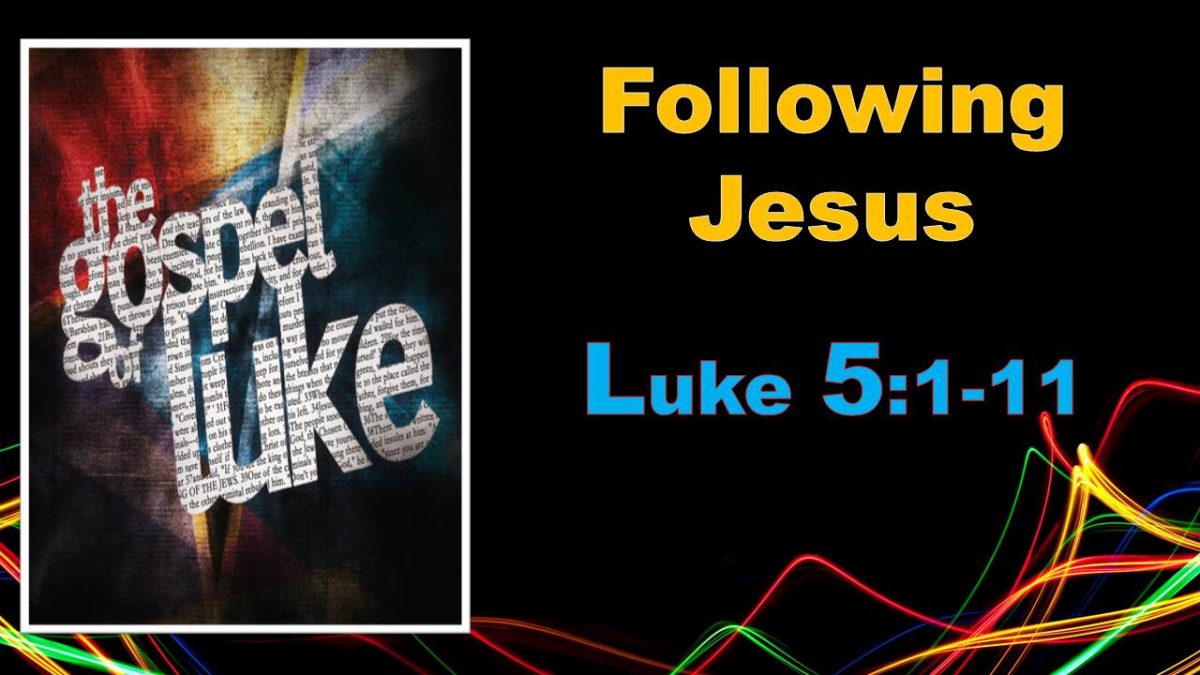These have been some fantastic Sunday mornings at Woodland! This time of year our “snow-birds” return to us; our “cabin people” take up residence; and Forest Springs staff haven’t quite hit the level of activity at which they will find themselves a few weeks from now. These make for wonderful, upbeat Sunday mornings of joy and celebration!
Oh, and we keep learning more about Jesus from the Gospel of Luke! This week, in 8.26-39, we discover yet another unlikely follower of Jesus in the person of the demoniac. Jesus takes His disciples on a kind of spiritual retreat. But what a venue He’s chosen! It’s the other side of the Sea of Galilee, the Gentile side where we imagine a pallid sky, a moonscape filled with rocks and tombs, and a herd of pigs.
Jesus steps out of the boat, and a man approaches (:27). This man has “demons”. And there is a kind of calculated chaos in Luke’s presentation of the number of evil spirits who possess the unfortunate wretch of a man—sometimes it’s one, sometimes many; sometimes the demons use “I”, sometimes “we”. Like Gollum in The Lord of the Rings the man is submerged in darkness of every kind—mental fragmentation, social isolation, physical nakedness and a strength that far surpasses that of any healthy man.
The demon(s) recognize Jesus (:28). What have you to do with me, Jesus, Son of the Most High God? Have you come here to torment me? Important here is that the demon(s) are absolutely lucid with respect to the reality of their situation: they’re going to be confined to darkness and brought to judgment (see 2 Pet 2.4). Only they don’t want to go there yet. Instead, they prefer to wander in desolate places looking to be hosted by flesh-and-blood creatures (see Luke 11.24-26); and, they’re crying “unfair” to Jesus who threatens to judge them before their time.
Jesus examines the demons (:30). “What is your name?” He asks. Legion, the demons answer, for many demons had entered him. This is instructive. It appears that Jesus will need to demonstrate His authority in a manner not yet shown. Since a great army of demons possess the man, a large number of hosts will be required to possess the spirits, if Jesus is to grant the request. He does, and allows the demons to enter into a herd of pigs who then rush to their destruction (:32-33).
As miraculous of a display of power as this is, we haven’t yet arrived at the point of the account. In verse 34, the herdsmen flee for fear into the city and “announce” (“tell,” in the ESV) what has become of the pigs. In verse 35, those of the city go out to their lost herd, only to find the man in his right mind sitting at Jesus’ feet. Those who find the man “announce” (there’s that word again) what Jesus has done for the man. The man, whom we’ve not yet really met in the story, is now mentally, emotionally, physically, socially at peace. And, he has found JESUS!
Like the demons, the people of the city fear Jesus, because they want something other than Jesus. They ask Jesus to leave, and He does, because He won’t remain where He’s not wanted. Then, while Jesus is getting into the boat (which functions like a pair of bookends in the story), the formerly-possessed man asks to come with Jesus.
Jesus’ reply really makes the story: Return to your home, and declare how much God has done for you, Jesus tells him. Then we are told, … he went away, proclaiming throughout the whole city how much Jesus had done for him (:39).
The major application of the account can be found in the three verbs of proclamation, in the second half of the story: announce … declare … and PROCLAIM.
Sometimes, in our attempt to be informal and friendly, we get too casual about reporting what Jesus has done. This story helps us. Those freed from darkness need to PROCLAIM what Jesus has done. And this brings us to three take-aways:
- We all begin in darkness and seek rest in Jesus. The demoniac is an extreme case, but we’re not entirely unlike him. We don’t begin life seeing clearly our spiritual condition. We need the Spirit of God to illumine our situation, and we need peace in Jesus in order to be free from our sins. And this is possible, because, unlike the demons, Jesus died for us.
- the Gospel is something we proclaim! Sure, we can talk about “sharing the Gospel”. (I probably won’t give up that language.) But, those who have been freed from darkness won’t talk about Jesus like He’s a marketing plan. We will proclaim the facts of what Jesus has done—at the cross and in our lives.
- We at Woodland are increasingly a people who proclaim what Jesus has done. This needs to be our business, in our services, in smaller group studies and home gatherings, and, finally, in our community, as we urge others to trust Jesus and make God’s story of redemption part of their story of redemption.
Those freed form darkness proclaim what JESUS has done!
And so Jesus gathers to Himself yet another unlikely follower. This time He’s displayed previously unseen power over a myriad evil spirits and demonstrated that He is truly “Son of the Most High God,” with power over all God’s creation. And we have once again seen our Savior at work.
Let’s think back to Jesus’ work at the cross this week. And, as we do, let’s tell somebody about what Jesus has done. Then, let’s reflect on what it’s like to find peace from darkness by faith in Jesus. And as we do that, let’s proclaim Jesus all over again.
And, as you do, have a great week in the Lord!




